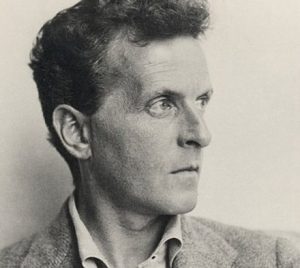John Horgan in Scientific American:
 If you bring together two enigmas, do you get a bigger enigma, or do they cancel each other out, like multiplied negative numbers, to produce clarity? The latter, I hope, as I take on Wittgenstein and mysticism.
If you bring together two enigmas, do you get a bigger enigma, or do they cancel each other out, like multiplied negative numbers, to produce clarity? The latter, I hope, as I take on Wittgenstein and mysticism.
I’ve been puzzling over these topics since my philosophy salon met to discuss “The Mysticism of the Tractatus,” written in 1966 by B.F. McGuinness. The salon consists of eight or so people, most with graduate degrees in philosophy, who gather in the salon-runner’s living room to jaw over a paper. Ludwig Wittgenstein, whom Bertrand Russell described as “the most perfect example I have ever known of genius as traditionally conceived,” published only one book during his lifetime, Tractatus Logico-Philosophicus. First issued in German in 1921, Tractatus is a cryptic meditation on what is knowable and unknowable.
“Mysticism” is often used as a derogatory term to describe obscure, fuzzy thinking, or woo. But in “The Mysticism of the Tractatus,” McGuiness uses the term to refer to an extraordinary form of perception described by sages east and west. In Varieties of Religious Experience, still the best scholarly treatment of mysticism, William James notes that during a mystical experience you feel as though you are encountering absolute truth, the ground of being, God. These revelations are laden with spiritual significance and accompanied by intense emotions. You often feel a sense of blissful timelessness and oneness with everything (although the experience can also be hellish).
More here.
